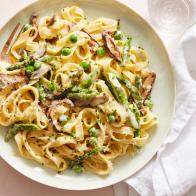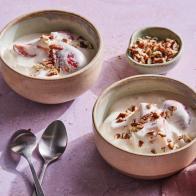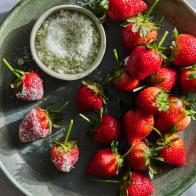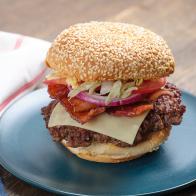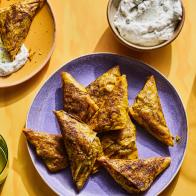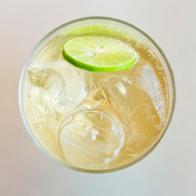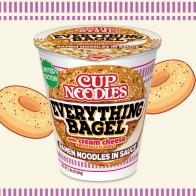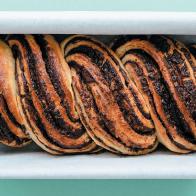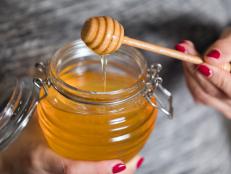What to Eat When You're Spiraling
A nutritionist shares tips on how to meet your body's needs when everything feels out of control.

ceciangiocchi/Getty Images
During periods of stress, nourishing the body is necessary to support mental health, immune function, and overall wellbeing. Everyone experiences sadness and anxiety from time to time; however, harnessing tools to acknowledge and address evident life ruts is key to coming out stronger on the other side.
Nutrition is one of the most important pillars of both preventative and reactive health. Food can directly influence how we act, feel, and recover from stress or trauma. When our bodies react to unpleasant stimuli, the hormone cortisol is released to manage our inborn “flight or fight” response. However, the continuous release of this stress hormone can lead to chronic inflammation and poor health outcomes, such as high blood pressure. In addition to cortisol, chronic stress has been shown to impact circulating concentrations of insulin (glucose uptake hormone), ghrelin (hunger hormone), and leptin (satiety hormone), which may influence eating patterns. Therefore, food intake can either combat or contribute to adequate cortisol management. Additionally, emotional resiliency, sleep, and self-care may help moderate stress response and support immune function. Most importantly, recognition of foods, substances, and situations that may trigger negative feelings is critical to supporting individual wellbeing.
Moderate Caffeine and Alcohol Intake
To promote optimal stress management and body function, fueling the body with nutrient-dense foods is key. Avoiding certain substances (such as caffeine, tobacco, or alcohol) may also help to prevent exacerbation of stressful or sad experiences. For those with and without anxiety disorders, high doses of caffeine may cause unpleasant symptoms, manic, and heightened stress. Understanding individual caffeine tolerance is important, especially during demanding times. With that, moderating intake of caffeine or switching to decaf coffee and tea may lessen the occurrence of anxiety and stress. Drinking no more than two cups of caffeinated coffee per day is a good place to start.
For some, alcohol is used as a method to escape feelings of sadness or depression. While wine, beer, or liquor may provide temporary emotional relief, studies show that alcohol impairs global emotion recognition, disrupts sleep, and may lead to dependency. These outcomes may contribute to even greater stress in the long run, so maintaining a healthy relationship with alcohol during difficult periods is critical to supporting optimal wellbeing. Further, the CDC recommends limiting intake to two drinks or less per day for men or one drink or less per day for women.
Focus on Complex and Fiber-Rich Carbs
While an excess of refined carbs and sugars may exacerbate feelings of depression, consuming complex and fiber-rich sources (such as whole grains, fruits, and vegetables) may help produce more mood-enhancing neurotransmitter, serotonin. Serotonin also plays a role in sleep onset, pain sensitivity, and blood pressure regulation. Emotional eating can be a slippery slope when it comes to stress management, so it’s crucial to focus on eating for nourishment instead of pleasure (i.e., choosing junk foods) when feeling down. If you struggle with emotional eating, seeking appropriate psychological treatment may be warranted.
Eat Enough Healthy Fats and Vitamin D
Recent studies have elucidated that intake of healthy fats, such as omega 3-fatty acids, helps to combat symptoms of depression and improve brain function. If you find yourself stuck in a rut, incorporate foods such as salmon, hemp seeds, olive oil, dark leafy greens, and flaxseed into your diet. Finally, deficiencies in vitamin D and selenium have been linked to increased risk of depression and anxiety. During challenging times, supporting emotional and physiological health with foods such as tofu, dairy, fish, seafood, nuts, beans, whole grains, and high-quality lean meat may help combat feelings of sadness and boost immune response. If obtaining vitamins and minerals from food is challenging, taking a daily multivitamin and/or 600 to 800 IU of Vitamin D is an adequate "insurance policy."
Move Your Body
In general, eating healthful, home-cooked whole foods is a restorative and rewarding way to boost mood, increase phytonutrient intake, and develop kitchen skills. On top of this, moderate, mindful movement has shown to improve mental health by reducing anxiety, depression, and negative mood. Research also indicates that physical activity helps to enhance self-esteem and cognitive function. A simple walk around the block may help lift spirits, so get moving!
Now, more than ever, the importance of self-care and preventative health practices cannot be overlooked. Practicing self-love and compassion, engaging in mindful movement, and pursuing adequate nourishment are strategies to manage the inevitable ups and downs of living through a pandemic and beyond. As always, discuss individual nutrition needs and supplement regimens with your RD or healthcare provider prior to making substantial lifestyle changes.
Vanessa Rissetto received her MS in Marketing at NYU and completed her Dietetic Internship at Mount Sinai Hospital where she worked as a Senior Dietitian for five years. She is the co-founder of Culina Health and is certified in Adult Weight Management (Levels I & II) by the Academy of Nutrition and Dietetics, and the founder of Culina Health. Her work in private practice also includes treatment of GI disorders, bariatric surgery, weight management, PCOS, and family nutrition. She loves helping clients take an active role in their health journey, motivating them and ensuring that they always achieve success. Vanessa was named by one of the top 5 black nutritionists that will change the way you think about food by Essence magazine. Vanessa lives in Hoboken NJ with her husband, two kids and their new goldendoodle Freddie. An exercise enthusiast, she is always up for a class as long as it's after she rides her Peloton.
*This article was written and/or reviewed by an independent registered dietitian nutritionist.
Related Links:
